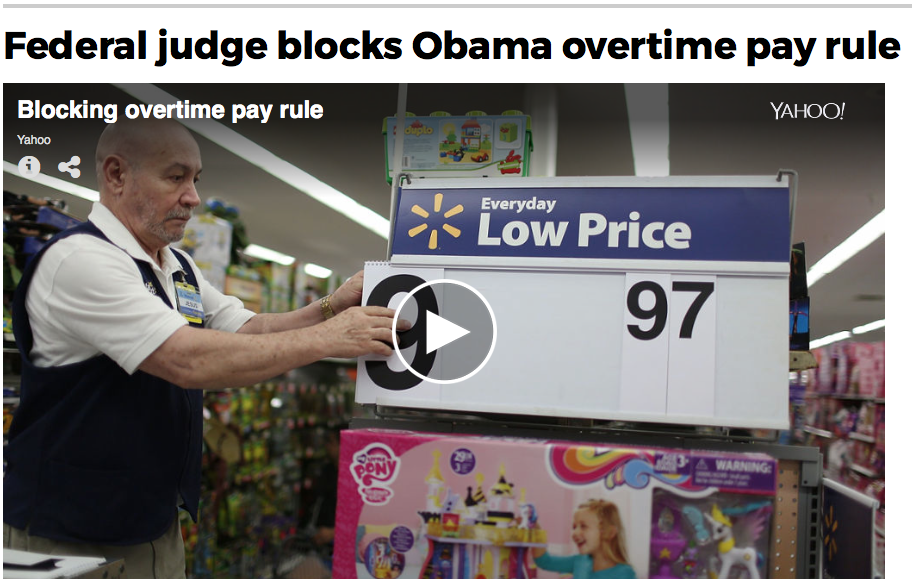Even though I was legally entitled to do so, I never paid any of my workers a salary; instead they were all compensated hourly and therefore entitled to overtime at time-and-a-half if they worked over 40 hours in any given work week. I could have paid any one my “management” employees $23,660 per year or more, and they would have had to work as many hours as I told them to. I knew this because a Department of Labor rule said that all you had to do was make sure that all managers made at least $23,660 and you could require them to work over 40 hours without being paid overtime.
Not fair
President Obama, along with many labor leaders, felt this was inequitable. A Pizza Hut manager being paid $35,000 per year, for example, might actually average 80 hours per week. That would mean that he or she would earn $8.41 per hour. Obama pushed the Department of Labor to raise the overtime salary threshold to $47,476. This meant that anyone who one made less than that amount was entitled to overtime at time-and-a-half. This change was set to occur on December 1, 2016.

Then this happened
“A federal judge has blocked a Department of Labor rule on overtime pay that made more than 4 million private-sector workers eligible for mandatory extra pay or time off.”
U.S. District Judge Amos Mazzant of the Eastern District of Texas, whom President Obama appointed, imposed a nationwide injunction against the rule at the request of 21 states, the U.S. Chamber of Commerce, and other business groups.
Business groups cheered the decision as another rebuke of the Obama administration’s penchant for regulation and for extending executive power.
“The Labor Department’s overtime changes are a reckless and aggressive overreach of executive power, and retailers are pleased with the judge’s decision,” said David French, the National Retail Federation’s senior vice president for government relations.
The judge said the Labor Department regulation exceeded the authority granted it by Congress, which he said gave Labor the right to define which workers are considered salaried but only based on the duties they performed, not by how much they made.
So, what should you do? I’ll discuss solutions in my post next week! Stay tuned.
Editor’s note: Michael Rosman and Michael Attias will be conducting an interactive half-day seminar, “All Things Corporate Drop-off Catering” on March 15, 2017 at Catersource in New Orleans. The session is included in the purchase of a Catersource all access pass, or can be purchased separately as a one-off. For more information, visit http://schedule.catersource.com/track/all-things-corporate-drop-off-catering

If you would like to contact Michael Rosman directly about his consulting and coaching services, you may call him at 781-641-3303, email him at [email protected] and visit his membership website www.TheCorporateCaterer.com. Michael is a regular contributor to the Catersource.com website, and also has published two books which are available for purchase at www.catersource.com/catersource-store



